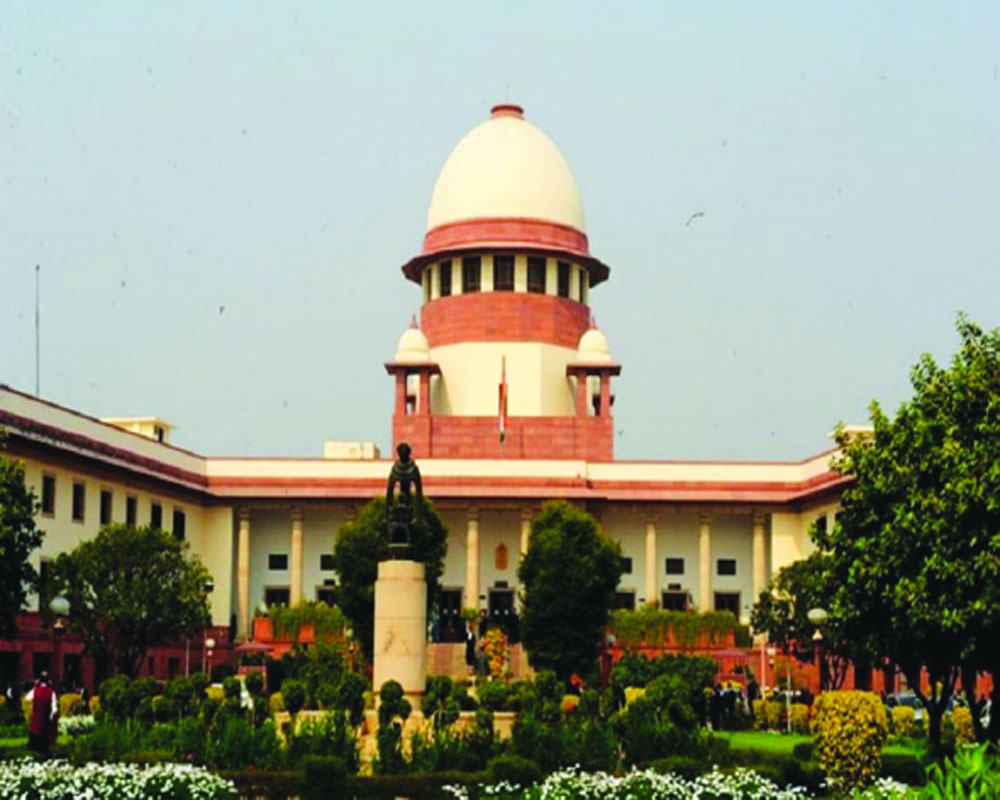SC allows daughters to claim their rights on parental property with retrospective effect in a landmark ruling
Giving hope to millions of women, who have traditionally been denied a share in their parental property owing to the cultural preference for a son and the idea of “keeping the wealth within the family”, the Supreme Court has said that daughters now have a birthright to parental property with retrospective effect. In essence, this allows women to challenge past injustices, coercion and denials and claim restoration of their economic rights. A three-judge Bench headed by Justice Arun Mishra ruled that a Hindu woman’s right to be a joint heir to the ancestral property does not depend on whether her father was alive or not when an old segregatory law was amended in 2005. The Hindu Succession (Amendment) Act, 2005 gave Hindu women the right to be coparceners or joint legal heirs with men but did not clarify whether it could apply retrospectively. Not only does the ruling take away the gender bias from inheritance, one that has disempowered girls socially and led to their differential upbringing and value systems, the court also lauded daughters as more suitable and responsible heirs who deserve a share of parental legacy. “A son is a son till he takes him a wife...a daughter is a daughter all of her life,” Justice Arun Mishra said while reading out the order. “A daughter remains a loving daughter throughout life,” he added, emphasising the compassionate nature of women as care-givers. This also clears the decks for settling countless appeals on the issue that have been pending before different High Courts and subordinate courts on whether the amendment would be time-bound or not. Now that its applicability is crystal clear, this will not only open the floodgates for thousands of ancestral property-related disputes that had been put to rest but will also give women and their children, especially those who are not too well-heeled or financially independent, a fallback cushion. Traditionally, women have been denied a share in their fathers’ property in the belief that a girl’s share is given to her in the form of dowry and that one day she would inherit the property of her in-laws. Some enlightened families may have been reformist of their own accord but this has largely been the accepted social code. Yet it has been erroneous, for most women have been denied a share in the in-laws’ ancestral property after the husband’s death. Another drawback among women so far has been their poor or no legal awareness of their status as rightful stakeholders in family affairs. Even if they were aware of their rights, most women have been hesitant to claim their share in family estates as that would have meant going against their own flesh and blood for a piece of land or house. Plus, with most women in India brought up in a patriarchal society, they were made to believe that in case of a marriage going south or their single status, they would be supported by their father and in his absence, by the brother. Hence, most of them, over the years, have meekly given up their rights on property in exchange for this familial anchor. While mindset changes will only come with time, the ruling of the apex court unfetters those who are willing to stand up for their coparcenary rights.
It is no secret that access to property empowers women economically, provides them with a sense of security and self-worth and strengthens their decision-making powers. Research shows that ownership of property by women has reset the asymmetry in gender relations, resulting in reduced domestic violence, both physical and psychological. Owning assets also gives women caught in abusive relationships an exit route, which they might not have had otherwise, particularly if they are not financially independent. All in all, this judgment is a reassertion of the constitutional value of equality to women in personal law without any pre-conditions. However, one aspect that is being largely ignored in the media over the jubilation on this ruling is that there is a flip side, too. Coparcenary right is an undefined liability and any liability of the father, including the family debt and other dues, will be extended to daughters as well. So, it is not just about the right, it is about inheriting responsibility as well. Besides, what of women in other religious communities, who are governed by separate personal laws in several matters, including inheritance rights? While Hindus, Sikhs, Buddhists and Jains are governed by laws on property rights codified in the amended Hindu Succession Act of 2005, Christians and Parsis are governed by the Indian Succession Act, 1925. Property rights of Muslims — both Shias and Sunnis — are yet to be codified. Till we uniformly address gender inequalities in the area of inheritance and have a representative civil rights framework for women across the spectrum, they would be subjected to abuse.


























